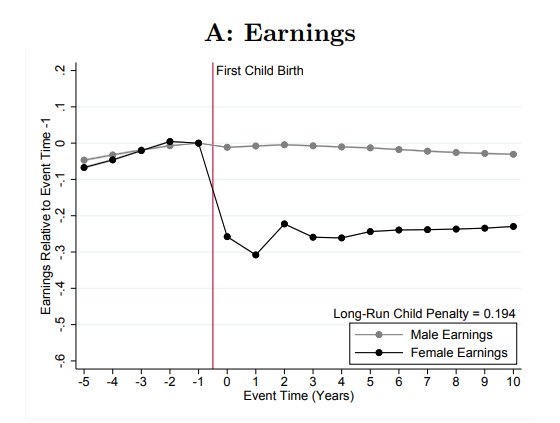
Professor of Economics, Erasmus University Rotterdam @ErasmusUni; voorzitter Economenvereniging KVS @KVSEconomen; gastschrijver @DeCorrespondent
How to get URL link on X (Twitter) App


 The evidence for p-hacking and publication bias is particularly strong for MTurk studies in Marketing
The evidence for p-hacking and publication bias is particularly strong for MTurk studies in Marketing

 Quite similar results are found for Germany.
Quite similar results are found for Germany.

 Germany is an extreme case, but sizeable "motherhood penalties" have also been found for Denmark, Sweden, the UK, the US.
Germany is an extreme case, but sizeable "motherhood penalties" have also been found for Denmark, Sweden, the UK, the US.


 "almost all ships globally are dismantled in poor environmental conditions after being “beached” on the shores of Bangladesh, India or Pakistan"
"almost all ships globally are dismantled in poor environmental conditions after being “beached” on the shores of Bangladesh, India or Pakistan"
 The newer data are also from YouGov in the UK, collected in April 2017, and commissioned by @economics_net and @ing_economics.
The newer data are also from YouGov in the UK, collected in April 2017, and commissioned by @economics_net and @ing_economics.


 The study has now been replicated in the Netherlands, finding strong evidence for discrimination:
The study has now been replicated in the Netherlands, finding strong evidence for discrimination:

 The divergence is even sharper in these countries.
The divergence is even sharper in these countries.